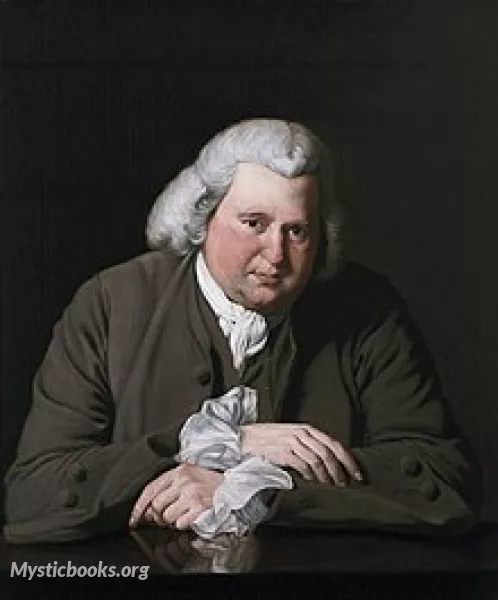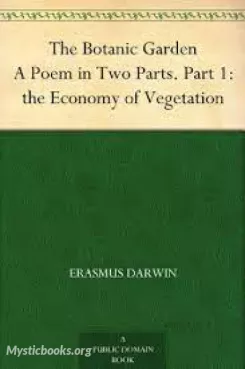
Timeline
Title
Country/Nationality
Erasmus Darwin
Erasmus Darwin was an English physician, poet, and philosopher. He was born in 1731 in Elston Hall, Nottinghamshire, England. Darwin was a member of the Enlightenment, and he was influenced by the work of Isaac Newton, John Locke, and Voltaire. He was also a close friend of the poet and philosopher William Blake.
Darwin was a prolific writer, and he produced a wide range of work, including poetry, essays, and scientific treatises. He is best known for his work on evolution. In his poem The Temple of Nature (1803), Darwin proposed a theory of evolution that was similar to the theory of natural selection that would later be developed by his grandson, Charles Darwin.
Darwin's theory of evolution was based on the idea that organisms change over time in response to their environment. He believed that organisms that are better adapted to their environment are more likely to survive and reproduce. This process of natural selection leads to the evolution of new species.
Darwin's theory of evolution was controversial in his own time, but it has since become one of the cornerstones of modern biology. Darwin is considered to be one of the most important scientists of all time, and his work has had a profound impact on our understanding of the natural world.
Who was Erasmus Darwin?
Erasmus Darwin was an English physician, poet, and philosopher. He was born in 1731 in Elston Hall, Nottinghamshire, England. Darwin was a member of the Enlightenment, and he was influenced by the work of Isaac Newton, John Locke, and Voltaire. He was also a close friend of the poet and philosopher William Blake.
What were his principles?
Darwin was a firm believer in the power of reason and observation. He believed that the world could be understood through science and that the laws of nature were governed by reason. He was also a strong advocate for social reform and believed that society could be improved through education and scientific progress.
What was he famous for?
Darwin is best known for his work on evolution. In his poem The Temple of Nature (1803), Darwin proposed a theory of evolution that was similar to the theory of natural selection that would later be developed by his grandson, Charles Darwin.
What were his notable works?
Some of Darwin's notable works include:
- The Botanic Garden (1789): A poem about botany
- The Temple of Nature (1803): A poem about evolution
- Zoonomia (1794-1796): A treatise on medicine and natural history
- A Plan for the Conduct of Female Education in Boarding Schools (1797): A treatise on education
- The Life of Erasmus Darwin (1803): A biography of his grandfather
What was his philosophy?
Darwin was a firm believer in the power of reason and observation. He believed that the world could be understood through science and that the laws of nature were governed by reason. He was also a strong advocate for social reform and believed that society could be improved through education and scientific progress.
When did he die?
Darwin died in 1802 at the age of 70.
How is he remembered?
Darwin is remembered as a pioneer of evolution and a major figure in the Enlightenment. His work has had a profound impact on our understanding of the natural world and has helped to shape the modern world.
Anything interested to know about the author?
- Darwin was a close friend of the poet and philosopher William Blake.
- He was a founding member of the Lunar Society, a group of scientists and intellectuals who met monthly to discuss scientific and philosophical ideas.
- He was a strong advocate for the abolition of slavery.
- He was a vegetarian.
- He is the grandfather of Charles Darwin, the famous naturalist who developed the theory of evolution by natural selection.
Books by Erasmus Darwin

The Botanic Garden, a Poem in Two Parts. Part 1
Step into a realm where science and poetry entwine, where nature's secrets unfurl in mesmerizing verses. "The Botanic Garden, a Poem in Two Parts. Part 1" by Erasmus Darwin beckons readers on a captivating journey through the lush landscapes of imagi...